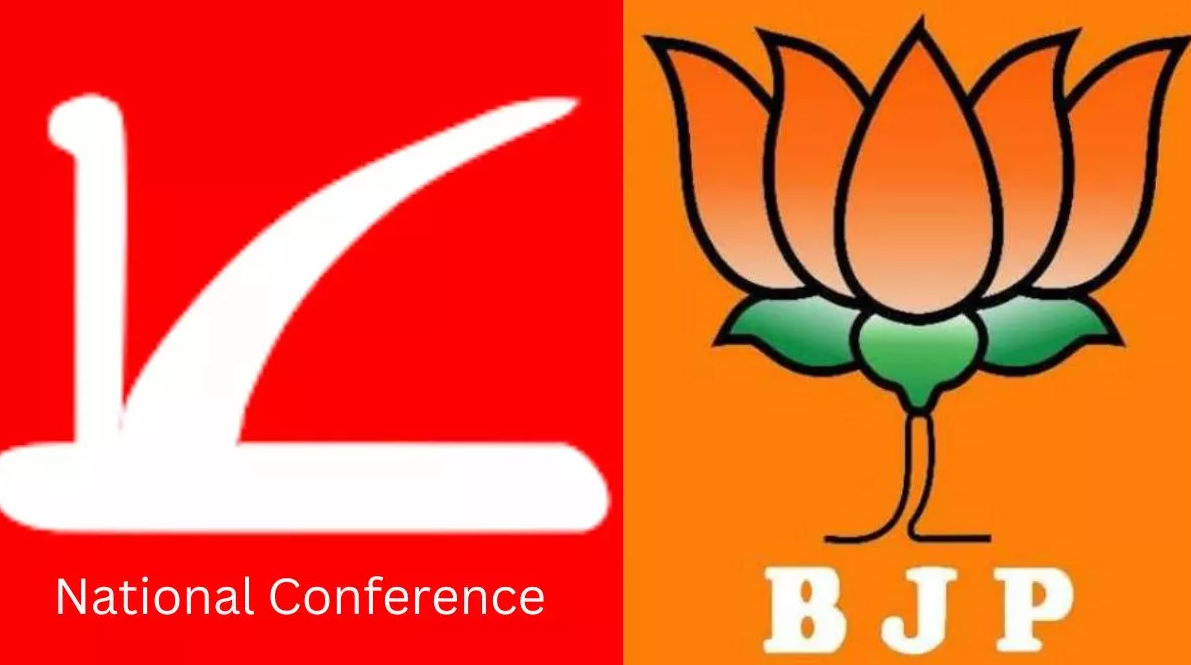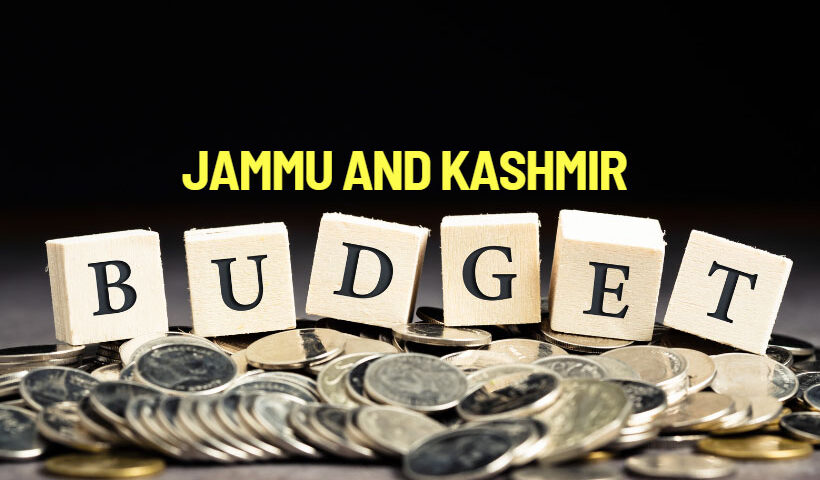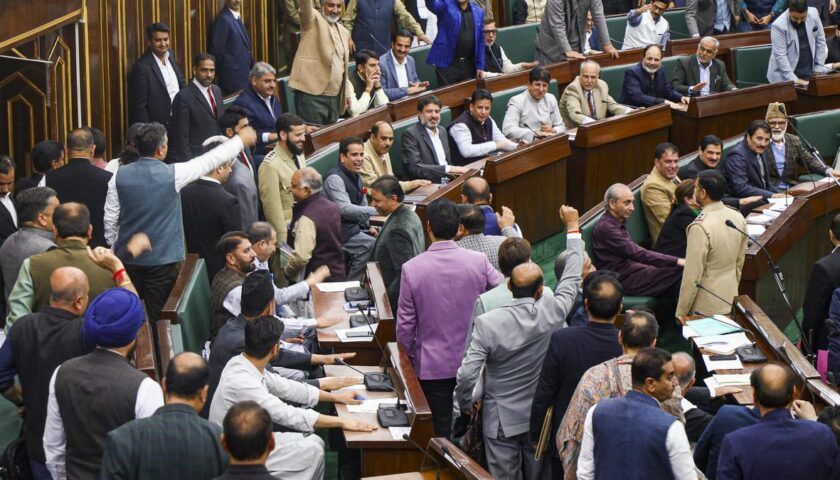BJP Slams Omar Abdullah Over Jallianwala Bagh Comparison: Kashmir’s History or Political Provocation?
By: Javid Amin | Srinagar / Jammu | 14 July 2025
What Sparked the Controversy?
On July 13, 2025, marking the anniversary of the 1931 killings outside Srinagar Central Jail, Omar Abdullah took to social media, describing the event as “Kashmir’s Jallianwala Bagh.” The statement invoked the memory of the 1919 massacre in Amritsar, where British troops opened fire on unarmed Indian civilians.
According to Omar, the 22 Kashmiri Muslims killed by Dogra forces were not rioters but martyrs who stood up to autocratic and colonial oppression. He lamented that:
“These men are being projected as villains today only because they were Muslims.”
This statement drew sharp criticism from BJP leaders, who accused him of communalizing history, glorifying violence, and twisting facts for political gain.
BJP’s Strong Rebuttal: “A Historical Lie”
Tarun Chugh: “Glorifying Rioters, Not Martyrs”
Tarun Chugh, BJP’s National General Secretary and party in-charge for Jammu & Kashmir, lashed out at Abdullah, accusing him of historical manipulation. He stated:
“Omar Abdullah is glorifying communal rioters and misleading the youth by comparing them to Jallianwala Bagh victims. The 1931 incident was not about national freedom. It was about sectarian incitement led by a man backed by British interests.”
He referred to Abdul Qadeer Khan, the man whose trial triggered the protest, as a “British agent” and accused him of inciting mob violence.
Sunil Sharma: “An Insult to True Freedom Fighters”
Sunil Sharma, the Leader of the Opposition in the Jammu & Kashmir Assembly, was even more blunt. He said:
“Comparing Jallianwala Bagh, where innocent, unarmed Indians were gunned down by the British, to the 1931 incident, where a violent and communal mob attacked symbols of the Dogra state, is a grave insult to India’s real martyrs.”
He also suggested that the victims of Jallianwala Bagh were fighting for all Indians, while the 1931 protest, according to him, had a sectarian character, driven more by religious anger than nationalist sentiment.
Historical Revision or Regional Resistance?
The fierce backlash from the BJP reveals a deeper, ongoing clash over the meaning of Kashmir’s historical memory—particularly events like July 13, 1931, which continue to divide opinion along ideological and regional lines.
National Conference (NC) & People’s Democratic Party (PDP)
-
View the 1931 killings as a turning point in Kashmir’s political awakening.
-
Celebrate Martyrs’ Day as a symbol of resistance against autocracy and colonial rule under British paramountcy.
-
Leaders like Omar Abdullah and Mehbooba Mufti have called for the restoration of the holiday, arguing that Kashmir’s heroes deserve equal space in Indian history, alongside Bhagat Singh and Mahatma Gandhi.
Bharatiya Janata Party (BJP)
-
Argues the 1931 uprising was communal, not patriotic.
-
Views Abdul Qadeer as a foreign agent, not a freedom fighter.
-
Positions Maharaja Hari Singh, the last Dogra ruler, as a heroic symbol of unity and Indian nationalism—his birthday was declared a public holiday in 2022.
-
Sees the glorification of July 13 as promoting separatist or sectarian agendas under the guise of historical remembrance.
Competing Narratives: Who Owns Kashmir’s Past?
The fierce war of words reveals not just ideological difference, but a powerful contest for narrative control over Kashmir’s history:
| Narrator | View on July 13, 1931 | Historical Legacy | Purpose of Commemoration |
|---|---|---|---|
| NC/PDP | Martyrdom & Resistance | Democratic Awakening | Honour local heroes, link to freedom struggle |
| BJP | Communal Uprising | Distortion of National History | Push unity under national symbols like Hari Singh |
| Separatists | Start of anti-India resistance | Legacy of oppression | Reinforce call for self-determination |
This triangular contest between regional parties, BJP, and separatists plays out each year—through press releases, street posters, banned rallies, and graveyard visits that never happen.
Beyond History: Political Power and Cultural Control
Omar Abdullah’s analogy didn’t just challenge historical interpretation—it undermined the BJP’s efforts to redefine Kashmiri identity in post-Article 370 India.
Since the abrogation of Article 370 in August 2019, the Union government has actively reshaped cultural and historical touchstones:
-
Ending the July 13 holiday
-
Adding Hari Singh Jayanti to the official calendar
-
Replacing street names and monuments
-
Promoting “national integration” narratives
Abdullah’s comparison was, therefore, not just historical—it was political. It challenged the legitimacy of the current Delhi-led administration’s version of Kashmir’s past.
Conclusion: Jallianwala Bagh or Sectarian Violence?
The heart of the controversy lies in one fundamental question:
Was July 13, 1931, a freedom movement, or a communal riot?
Depending on where one stands politically, the answer differs radically. What remains certain, however, is that Kashmir’s past is no longer a neutral historical account—it is now a battlefield of memory, where every analogy, every martyr, and every commemoration becomes a symbol of today’s politics.
By invoking Jallianwala Bagh, Omar Abdullah drew a parallel that was bound to provoke—because it touched not just a historical wound, but the very narrative of Indian unity, freedom, and inclusion.




